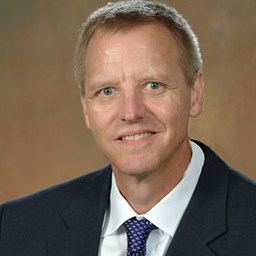Meteor Mentoring Program Launches
Meteor Mentoring Program Launches
By Jimmie R. Markham
Meteor Mentoring, a new Jindal School program, gives students opportunities to form a collaborative relationship with a more experienced student or professional who can help them learn, grow and develop their career path.
Mentoring — the counseling and support given by the senior person — can help smooth the transition between a student’s academic and professional life.

Meteor Mentoring builds on a program that Tom Henderson, assistant dean of undergraduate assessment and director of the bachelor’s program in business administration, started a few years ago. At the behest of Dr. Hasan Pirkul, Caruth Chair and Jindal School dean, Henderson refined his concept and now extends it to all undergraduates, alumni and local business professionals.
“It all starts with an experienced, well-equipped mentor,” Henderson says. “We made the selection process more rigorous, and we gave aspiring mentors the tools they need to succeed, including a handbook, orientation sessions and guest speakers who talk about their mentorship experiences.”
Any undergraduate is eligible to become a mentee.
But student mentors are required to have completed an internship and have done some community service. A minimum grade-point average of 3.5 is also required.
“Mentors need to have something to give the mentees,” Henderson says. “They are there to help their mentees help themselves. They’re not there to find jobs for their mentees, for instance, but more to act as a counselor or confidant, a trusted resource and a contact … who can point them in the right direction.”

Rounak Verma, MS’20, a data analyst at the delivery service Shipt, says that when he was a Master of Science in Information Technology and Management student, he found himself in several situations where he needed advice. As an international student, he says he had much to learn. Even so, it was easy for him to connect with staff, faculty and alumni through mixers and events.
“After the pandemic arrived, it became difficult for new students to network and make connections,” he says. “Hats off to the Jindal School’s networking platform JindalConnect,” which empowered new students to network with alumni.
JindalConnect is where Verma found and signed up for Meteor Mentoring.
When Tom Henderson told him “the number of mentees is more than the number of mentors, I decided to volunteer,” Verma says.

Sneha Jacob, a freshman in the Information Technology and Systems bachelor’s degree program, got involved with Meteor Mentoring after answering a survey.
“My goals are to get more clarity about college and how to navigate everything,” she says. “I don’t know a lot of people who have graduated college — my parents didn’t go to college in America, so it was different for them. I want to understand what I’m really getting into in the ITS field. I want to know what other people have experienced — especially in their first semester.”
Jacob and Verma recently met to get acquainted. She says she looks forward to upcoming meetings to learn more about the ITS profession and the career paths she can take.
Mentoring relationships, Pirkul says, are invaluable in helping students build their professional networks.
“Through our mentoring programs, we have been introducing students to executives for whom they may soon be working and in whom they can identify professional conduct, demeanor and mindset,” he says. “Mentoring, plus networking opportunities and career-building and interview sessions hosted by our own Jindal School Career Management Center, teach our students the value of building a brand for themselves and building relationships in their chosen fields.”